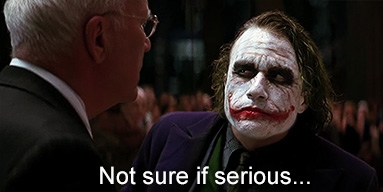ilitarist
Learned


- Joined
- Oct 17, 2016
- Messages
- 857
Golbez from FF II/IV wasn't that, more of a mind controlled Japanese Darth Vader.
If he does make the cut of that definition then 7-9 fit in as well alongside the added emo shit, with Sephiroth wanting to merge with the planet to become a god, Ultimecia wanting not simply to rule the universe but rule all time as well and Kuja wanting some mix of extermination and absolute rule.
TBH I just don't remember much about FF4 villain, played it after FF5-6 and didn't like it as much.
FF5 had Exdeath who just was an evil tree or something. He wanted to kill everybody and rule because he's evil. FF6 had mad clown but to get to him you went through more plausible evil empire that used general Lee (which is a name you use for noble adversary fighting for the wrong cause. Naturally). Now that I think about it FF6 was almost a modern BioWare RPG. You gather a team of unnecessary teammates some of which may die along the way and then you fight an evil force of evil, and if you want to find tons of lore you can.
Starting with Sephirot those people all have, ahm, sort of justifications. Sephiroth had bad childhood, he discovers people exploit the planet and are not original owners of the planet, so he restores justice. Ultimecia is caught in a timey whimey mumbo jumbo and she's hunted because she's a sorceress and she's evil because she's hunted or something. Kuja wants to save his people or something - don't quite remember him, but there's some sort of ambiguity and in the end he's absolved after heroes fight Giant Space Deathgod From Nowhere.
Those characters are presented as overreacting to some injustice. Also in case of FF10 you have undead dudes who think they've found the solution to world's suffering. Two sorts of them, in fact - the church and the summons.














